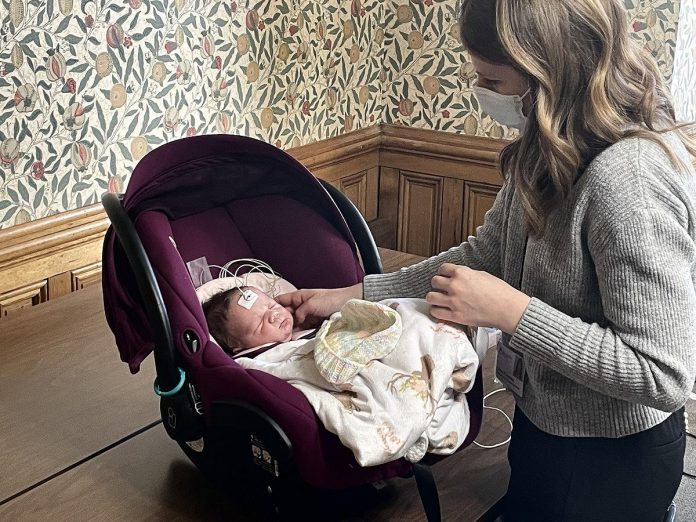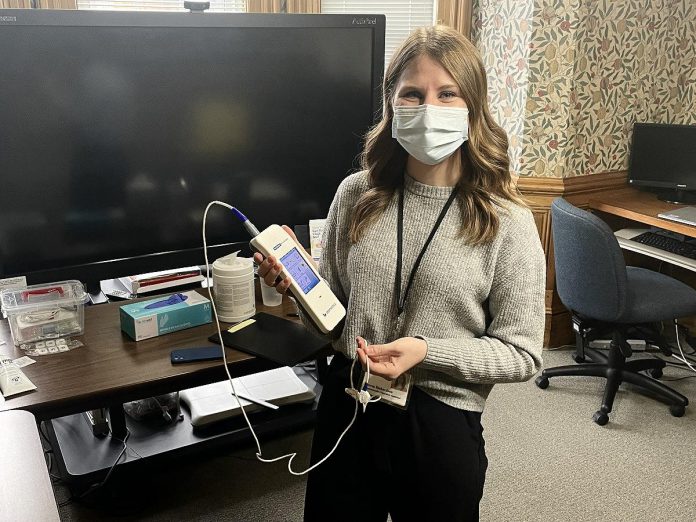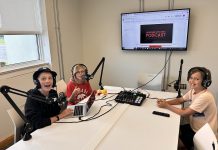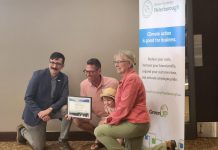
“Hush little baby, don’t say a word, we’re going to check your hearing and see how it works.”
While the lyrics in our version of ‘Hush Little Baby’ are slightly different than those of the traditional lullaby, the words should be just as soothing to newborns and their families. For when checking an infant’s hearing in the first few weeks of life, we can identify any problems immediately. This ensures these bundles of joy get the supports they need to develop language for life — whether it’s spoken or signed.
It’s ‘sound’ support, also known as Ontario’s Infant Hearing Program, which provides free hearing screening for all newborns in hospital or community settings. Five Counties Children’s Centre is part of the provincially funded Tri-Regional Infant Hearing Program (led by the Oak Valley Health Child Development Program) that delivers the Infant Hearing Program in our region.
The Infant Hearing Program checks infants for hearing loss. If there are any hearing concerns identified during the screening, more assessment will be done. This usually means a referral to an audiologist for a more in-depth assessment. If needed, a child can get access to technology and assistive devices (like hearing aids) or be referred to other support services.
While most babies will easily pass the screening, some do not. The fact is two out of 1,000 babies have hearing loss at birth and two more will develop hearing loss by the age of five. Even if it’s only a handful of babies per one thousand who have hearing issues, it’s important to know who they are.
After all, hearing is vital to a child’s future development. The first few months and years of a baby’s life are crucial for developing language. Not being able to hear properly makes this difficult and can have a cascading effect. Without proper hearing, kids may have delayed speech development. Lack of speech skills can lead to behavioural and emotional problems. This can impact learning in school and a child’s future success.

In identifying a hearing issue early on, a child can learn to communicate in the way that works best for them — be it the spoken word or sign language — ensuring they develop and reach their full potential.
The infant hearing screen is reliable, comfortable, safe and gives results right away. It measures the ear’s (or brain’s) response to soft sounds played in the baby’s ear and, if needed, may use small stickers placed on a baby’s head. Generally, the screening is best done when the baby is asleep.
In many cases, the infant hearing screening will also be carried out in hospital. At Peterborough Regional Health Centre, infants can have their hearing screened approximately 24 hours after birth. Babies born at other area hospitals or at-home will be screened at community clinics, including those provided at Five Counties.
If, for whatever reason, an infant did not get a hearing screen, families are encouraged to call Oak Valley Health’s Markham Stouffville Hospital site at 1-888-703-KIDS (5437), ext. 4, or go online to book an appointment for their child.
At Five Counties, our team of Communicative Disorder Assistants — Lauren and Stephanie in Lindsay, Wendy and Lynne in Peterborough, and Diane in Cobourg — feels fortunate to be part of the Infant Hearing Program. It’s heartwarming to work with parents and their beautiful babies to give them peace of mind about infant hearing or, if there is a red flag, to direct them for support to help their child succeed.
Infant hearing screening is a publicly funded program and takes only a few minutes. It’s a sound investment in your child!
VIDEO: Tri-Regional Infant Hearing Program (IHP)


























